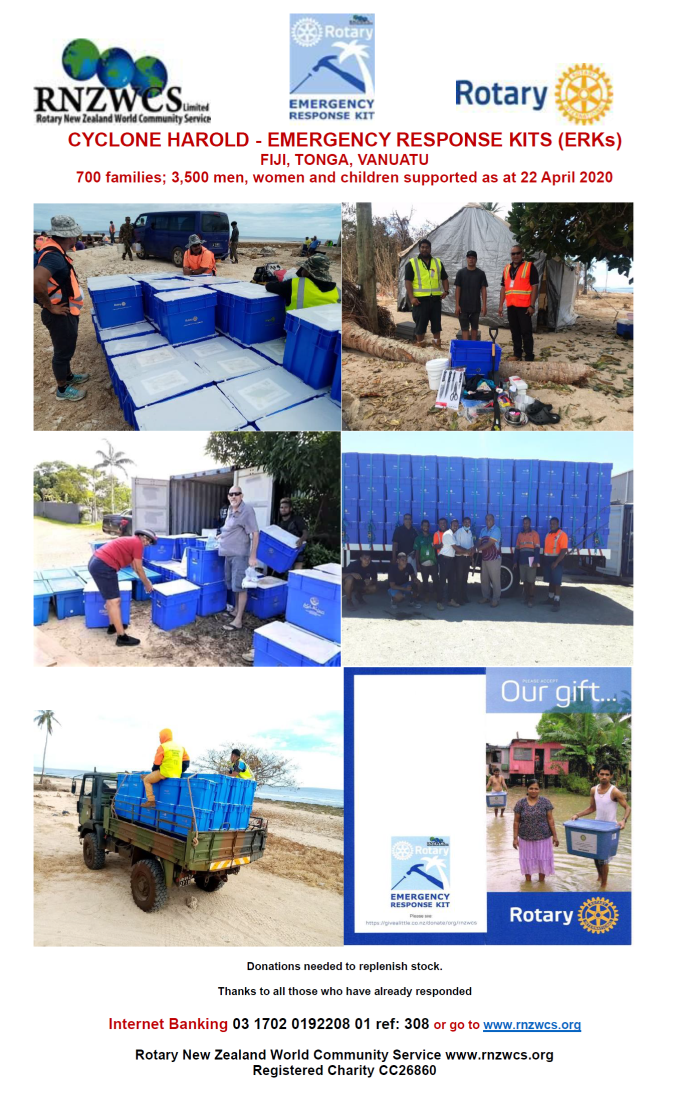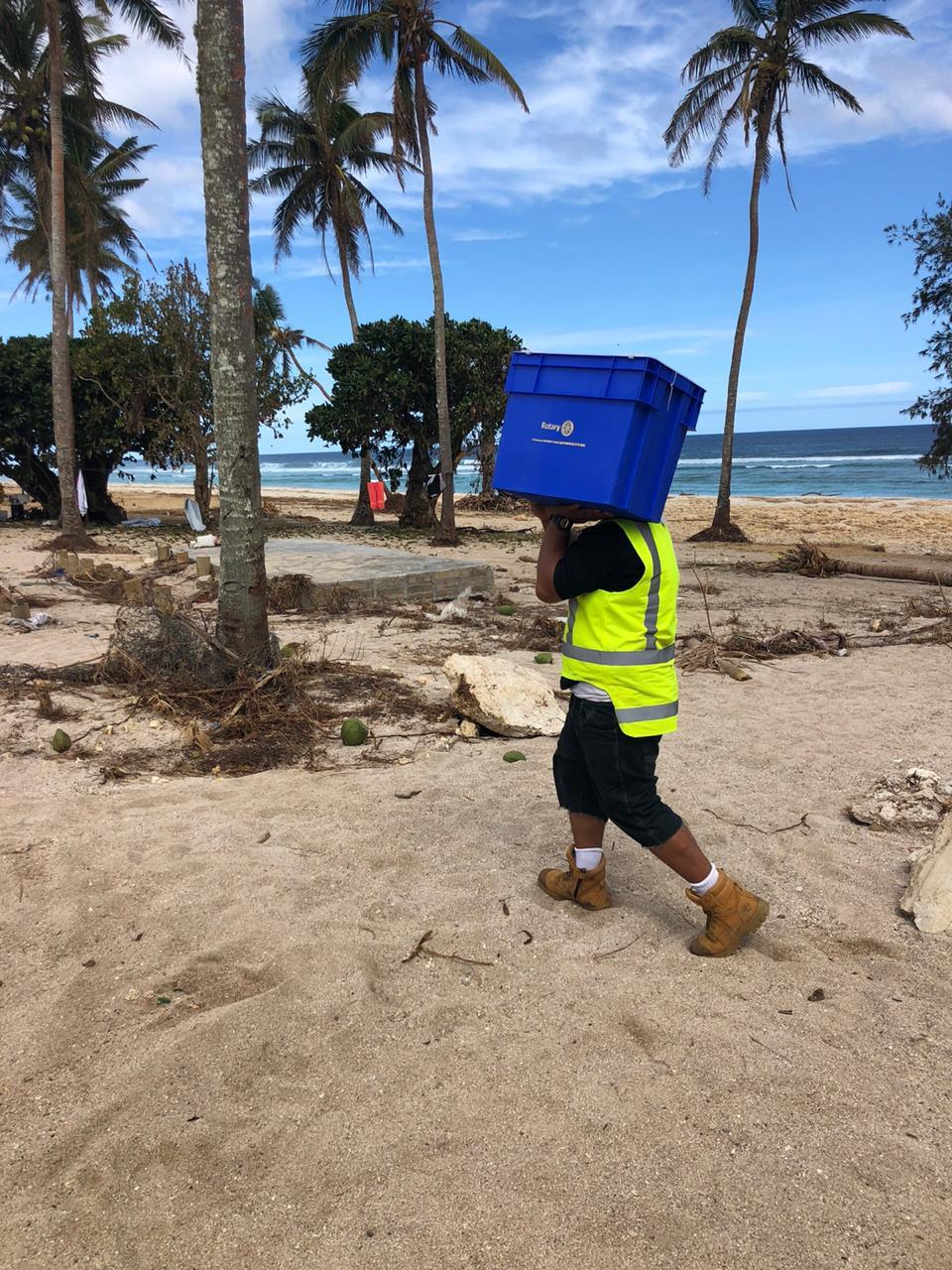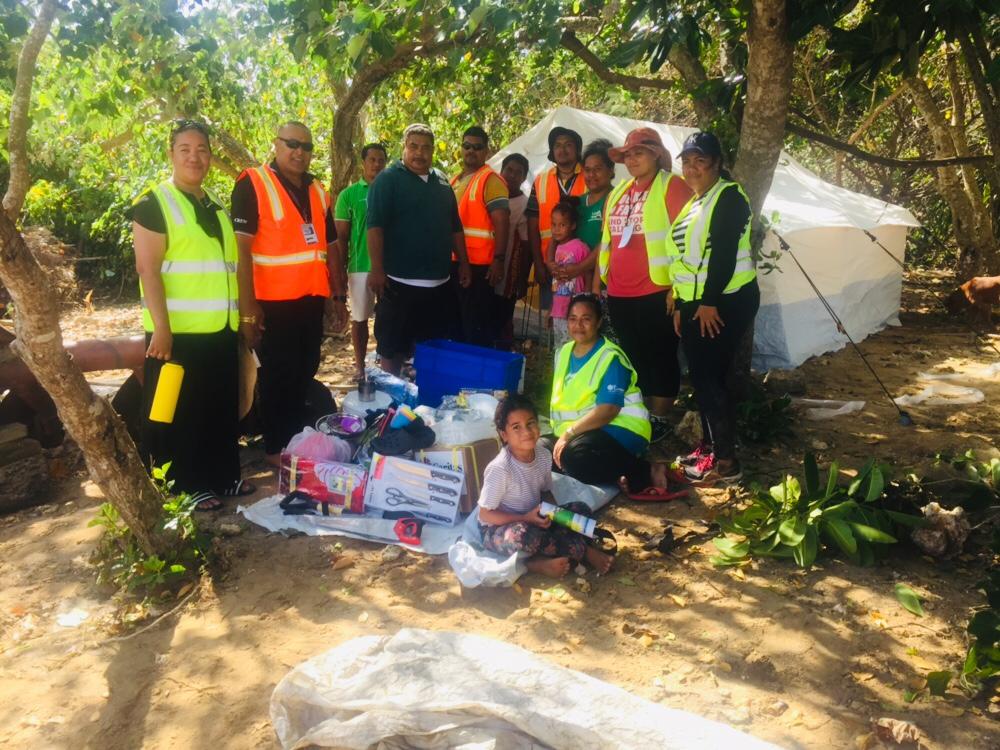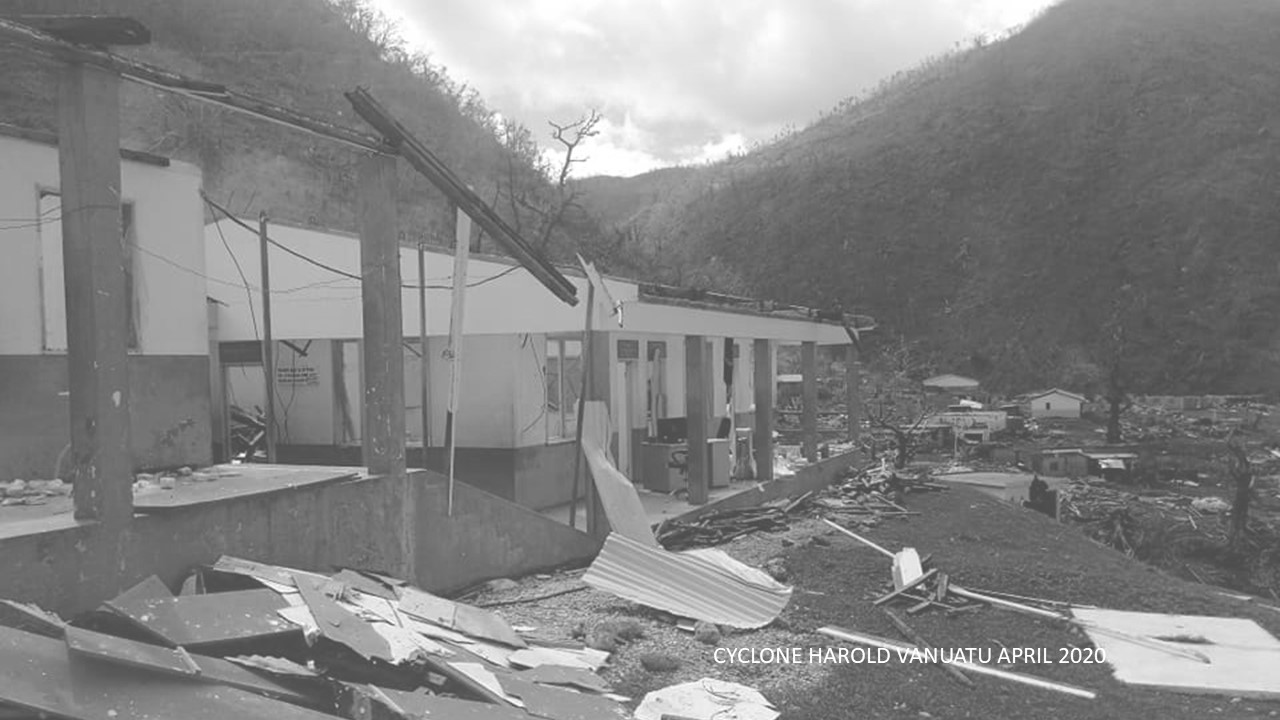
As if one major threat wasn’t enough to Pacific Island countries, Cyclone Harold has hit some of them hard at the same time as they have been trying to avoid or contain COVID-19.
Small, fragile communities, their health systems resources are always under pressure, as sadly demonstrated by the fatal epidemic of measles last year in Samoa.
The Cyclone risk to the region is a regular threat, and cyclones have become more powerful in recent times. Remember Cyclones Pam, Winston and Gita.
This year has been no exception. Cyclone Harold struck in early April, starting in the Solomon Islands as a slow moving but damaging storm before heading to Vanuatu, Fiji and Tonga, intensifying to the maximum level 5 as it advanced.
Severe flooding in the Solomons was followed by devastation to parts of the other island states caused by the cyclone’s winds of over 250 km an hour and the gigantic waves it generated, accentuated by king tides.



The cyclone was most destructive in Vanuatu, where approximately 92,300 people, including 24,300 children, live in the worst affected areas. In Pentecost, 90 per cent of houses, public infrastructures and gardens were destroyed.
Food crops were seriously affected and water infrastructure damaged. In Fiji, it left some 2,494 houses damaged or destroyed in its wake. Preliminary reports also show that 116 schools were damaged, affecting 11,524 children especially those in eastern and central divisions.
Cyclone Harold then hit Tonga – both the main island of Tongatapu and the nearby island of E’ua - where an estimated 428 houses were also damaged or destroyed.
The global COVID-19 pandemic has complicated responses to Cyclone Harold’s damage as it has hindered the movement of people and supplies.
Rotary New Zealand - RNZWCS Ltd - has, however, been able to target its response through close collaboration with the New Zealand Government, the Rotary Clubs in Vanuatu, Fiji and Tonga, and the National Disaster Management Offices (NDMO) in all three countries.
1,347 Rotary Emergency Response Kits (ERKs) have been and continue to be distributed to affected families in Vanuatu, Fiji and Tonga by dedicated Rotarians in the three countries. Fortunately, the Rotarians have been able to use pre-positioned stock in the region and work with Government agencies (e.g. military in Fiji) and local businesses and NGO’s (e.g. MORDI in Tonga). For most beneficiaries, the ERKs are the first tangible support they receive.
The ERKs are Rotary New Zealand’s principal response to addressing the emergency needs of families affected by natural disasters in the Pacific. The kits are specifically designed for the Pacific and are assembled and delivered by Rotary New Zealand World Community Service Ltd on behalf of all Rotary Clubs in New Zealand. Since 2007, well over 7,000 ERKs have been distributed following damaging cyclones and tsunamis. Each ERK costs around $600.
All current stocks of ERKs have been used up for Cyclone Harold so we now need to replenish stock as soon as COVID-19 allows.